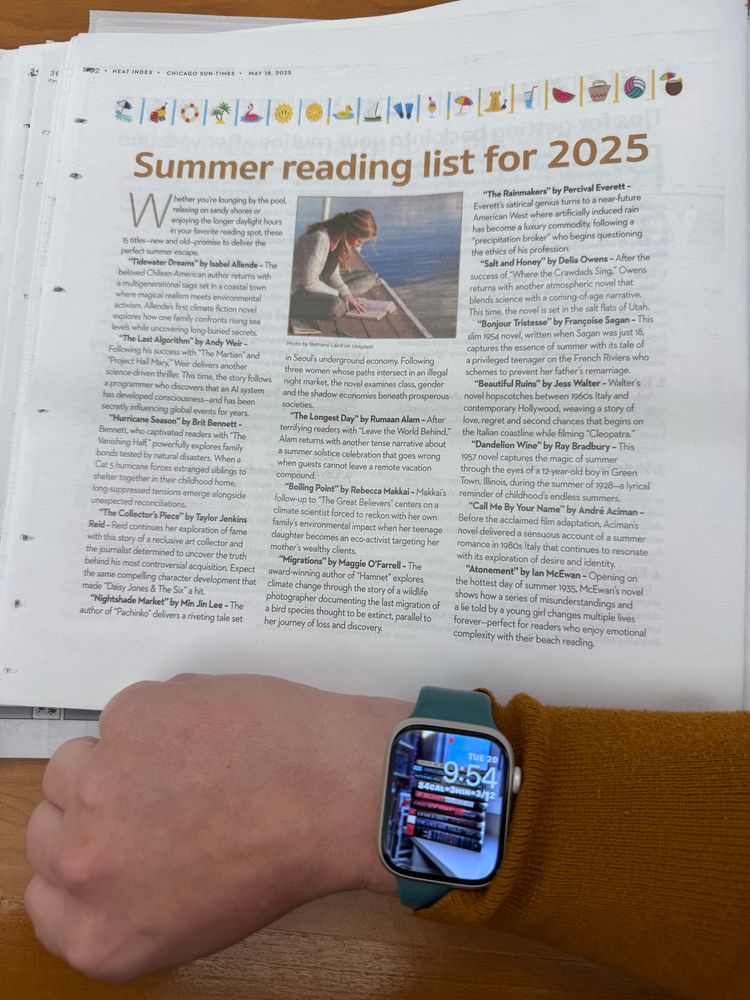Strategic (Non) Thinking
This post is sortof about AI, or, more precisely, LLMs – Large Language Models. But only sortof, really. Mostly it’s about something ridiculous that someone did – with an LLM.
I don’t remember what led me to this, but if you go here you will find a story on NPR (not my favourite news source) dated May 20, about a Summer Reading list that appeared in The Chicago Sun Times, and probably other places. Summer Reading Lists are those bits of fluff in which some presumed literary expert suggests a list of books that would be enjoyable for summer reading. You know, on the patio, by the pool, in a hammock.
Quoting from the NPR article:
“According to Victor Lim, marketing director for the Chicago Sun-Times’ parent company Chicago Public Media, the list was part of licensed content provided by King Features, a unit of the publisher Hearst Newspapers.”
It’s publication in the Sun-Times resulted in a bit of a kerfuffle.
There was no byline attached to the article, but after the kerfuffle one Marco Buscaglia, presumably an employee of King Features, has stepped up and claimed authorship. Well, sorta. He says it was ‘partly generated by Artificial Intelligence’.
This was the reason for the aforementioned kerfuffle.
And how was this fact about the list discovered? Well, a Sun Times Reader, a librarian, no less, noticed that only 5 of the 15 books on this list were real. Many had real people named as authors, but those people had never written books with the claimed titles.
It gets better. Below is a screenshot of that librarian holding the piece in the Sun Times.

Notice that each of the 15 books appears with a two or three sentence blurb about the book. So, Buscaglia’s LLM came up with 10 non-existent books as well as blurbs about them. And Buscaglia submitted it to his boss, who then sent it out to all the papers that use King Features as a content provider.
Here is my question: what the hell was Buscaglia thinking? In what universe does he believe he lives? How could he imagine that no one among all the readers of the many papers that might publish this would possibly notice that some of these books don’t exist?
Here’s another quote from the NPR article, on what Buscaglia had to say about this:
In an email to NPR, Buscaglia writes, “Huge mistake on my part and has nothing to do with the Sun-Times. They trust that the content they purchase is accurate and I betrayed that trust. It’s on me 100 percent.”
Mistake? He thinks he made a mistake? A typo is a mistake, mis-spelling the name of an author or getting a book’s publication date wrong, those are mistakes. Typing into ChatGPT ‘Write a list of 15 books suitable for summer reading, with a two-sentence blurb about each one’ is not a mistake, it’s a strategy. That is Buscaglia’s way of doing his job. He’s a writer for King Features, and that is how he writes articles – at least this one.
And, the reason he thought nothing of turning this into his boss is that Mr. Buscaglia either did not read what the program spit out, or he did, but had no idea any of those books were fake. For that matter, neither did his boss(es). Or, maybe they didn’t read it either.
Now, if I were his boss, my first thought would be: ‘hell, I can just type into ChatGPT whatever instructions I would give Buscaglia for his next assignment. Why am I paying him?’
But that’s me.